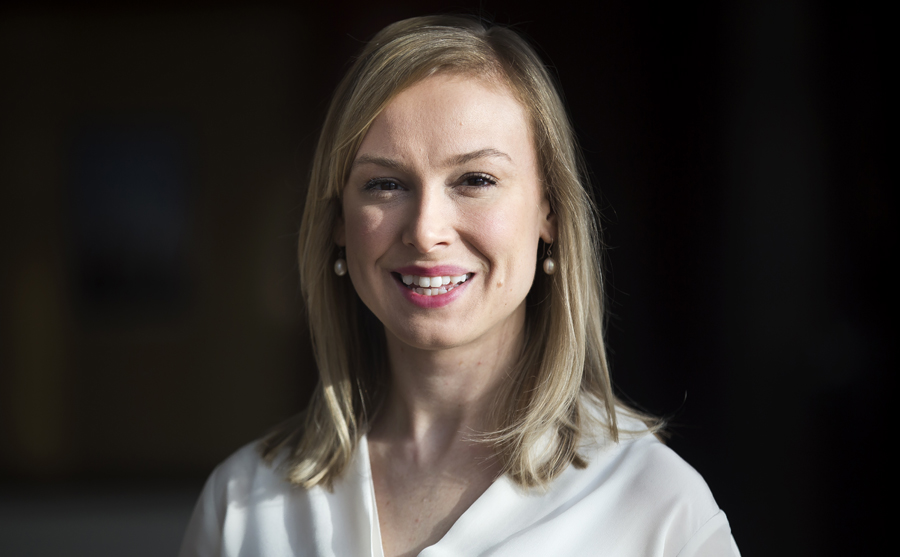Jenna Wiens receives NSF CAREER Award to increase the utility of machine learning in clinical care
Her primary research interests lie at the intersection of machine learning and healthcare.

 Enlarge
Enlarge
Assistant Professor Jenna Wiens has been awarded an NSF CAREER grant for her research project, “CAREER: Adaptable, Intelligible, and Actionable Models: Increasing the Utility of Machine Learning in Clinical Care.”
In recent years, the availability of clinically relevant medical datasets has grown enormously. However, there have been relatively few successes regarding translation to practice, and clinicians still base the bulk of their daily decisions on relatively small amounts of patient-specific data.
This research aims to transform the larger realm of available data into actionable knowledge through the exploration of new fundamental research directions and approaches in machine learning. By targeting patients identified as high-risk through computational data-driven models, practitioners could reduce the burden of disease in a cost-effective manner.
For data-driven predictive models to become widely and safely adopted in clinical care, there remain several key research challenges that the machine learning community must address: poor adaptability to complex unexpected changes in patient populations and clinical protocols, insufficient intelligibility of accurate but uninterpretable models, and absence of actionability, with accuracy overcoming actionability. Prof. Wiens will address these and other issues under the umbrella of this project.
More information about the project is available in Prof. Wiens’ CAREER Award Posting by NSF.
Prof. Wiens’ primary research interests lie at the intersection of machine learning and healthcare. The overarching goal of her research agenda is to develop the computational methods needed to help organize, process, and transform data into actionable knowledge. In addition to her work in healthcare, she develops machine learning methods for the extraction of strategically useful information from player tracking data in the National Basketball Association.
Prof. Wiens received her PhD in Electrical Engineering and Computer Science from the Massachusetts Institute of Technology in 2014 and joined the faculty of CSE at the University of Michigan that year. Her PhD research focused on developing accurate patient risk-stratification approaches that leverage spatiotemporal patient data, with the ultimate goal of discovering information that can be used to reduce the incidence of healthcare-associated infections. She is affiliated with the Artificial Intelligence Laboratoryat Michigan.
About the NSF CAREER Award
The CAREER grant is one of the National Science Foundation’s most prestigious awards, conferred for “the early career-development activities of those teacher-scholars who most effectively integrate research and education within the context of the mission of their organization.”

 MENU
MENU 
